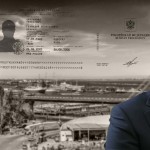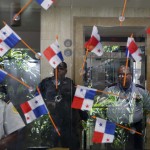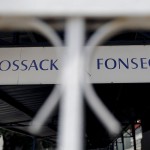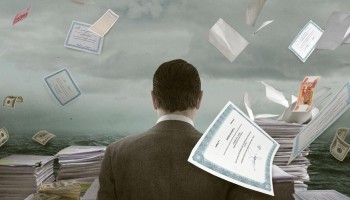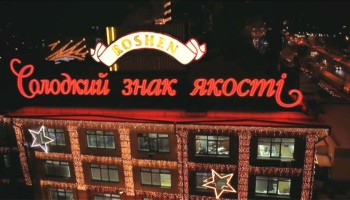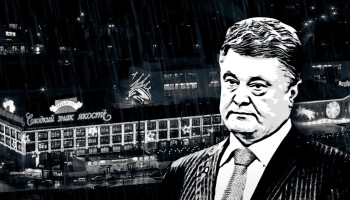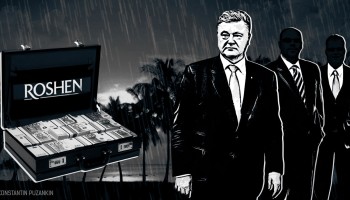Several weeks before the publication of the original Panama Papers investigation in April 2016, the Cyprus lawyers for Ukrainian President Petro Poroshenko were busy.
His representatives had received inquiries from reporters about an offshore company Poroshenko had set up to hold his vast candy empire. The British Virgin Islands (BVI) holding company, called Prime Asset Partners Ltd., would be outed in the published investigation.
Now, newly released Panama Papers documents show what Poroshenko’s lawyers were doing as the publication date approached — asking employees at Mossack Fonseca, the Panamanian law firm at the center of the leaks, to make changes in documents related to his firm.
The changes appear to have been designed to protect the president from criticism at home.
The aim of some was to remove Poroshenko from direct ownership of his BVI company. Others seemed to be an attempt to deal with the fact that he had failed to declare his ownership of the company twice — in his 2014 and 2015 mandatory income declarations. However, not all of the changes requested by Poroshenko’s lawyers were agreed to by Mossack Fonseca.
The new Mossack Fonseca documents were received by the German newspaper Süddeutsche Zeitung and shared by the International Consortium of Investigative Journalists (ICIJ) with the Organized Crime and Corruption Reporting Project (OCCRP). This data, collected after the release of the original investigations, sheds light on Poroshenko’s team’s attempts to control a story that was about to spin out of control.
The documents also show that, while the president claimed to have given up any direct control of his business, as it was put in trust, a close associate of his became the director of all three offshore companies involved.
A Big Commotion
As the Panama Papers exploded across the world in April 2016, the story about Poroshenko’s offshore company was one of its biggest revelations.
In a country that had recently deposed its previous president in part for his notorious corruption, Poroshenko understood that his ownership of Roshen, his massive candy and confectionery business, was a sensitive issue.
“If I get elected, I will wipe the slate clean and sell the Roshen concern,” he had told the German newspaper Bild during his electoral campaign. “As President of Ukraine I plan and commit to focus exclusively on welfare of the nation.”
Moreover, Ukrainian law at the time required him to transfer all his shares to independent managers within 10 days of the election.
But according to the leaked documents, in the months after becoming president in the summer of 2014, Poroshenko’s lawyers had established a BVI holding company to control Roshen — and the president was the new company’s sole shareholder.
After being contacted by reporters, Poroshenko’s people knew that at least some of this was about to become public.
This would be problematic for several reasons. The new offshore company was at odds with Poroshenko’s public statements. It was an apparent violation of the law. Furthermore, it raised the issue of whether the president was trying to avoid taxes by moving his company offshore.
After the story was published, Poroshenko’s lawyers and supporters spent months trying to convince voters that he had done nothing wrong. But their arguments were undermined by inconsistent stories and direct contradictions exposed by leaks and public records.
Responding to OCCRP’s initial questions about the BVI company in March 2016, Poroshenko’s lawyers first told reporters that the main purpose of establishing it was to make his confectionary business more attractive to potential buyers.
Then, after selling it for a good price began to seem less likely, they said they created the offshore structures to put his candy business into a Swiss “blind trust” that he would not control.
Representatives of the Zurich-based Rothschild Trust, a wealth management service provider, did confirm in April 2016 that it had been appointed to manage a trust to hold Poroshenko’s confectionary assets.
But little has been revealed about the terms of the trust agreement, specifically whether or not Poroshenko has kept any direct control over his companies. Repeated requests to Poroshenko and his lawyers to allow an independent analysis of the agreement for potential conflicts of interest have been left unanswered.
Behind the Scenes
The new Panama Papers files reveal what was going on at the time of the original leaks.
Just days after reporters asked about Poroshenko’s ownership of the BVI company, his Cyprus lawyers emailed Mossack Fonseca requesting some changes.
They wanted the overall number of shares in Prime Asset Partners to be increased from 1,000 to 50,000. The owner of the new shares would not be Poroshenko, but rather Prime Assets Capital, his Ukrainian foundation. This would effectively remove the president from the company’s direct ownership.
Yet, as the new leak shows, the Mossack Fonseca lawyers didn’t immediately act on the request. Instead, they requested more information about Prime Assets Capital. Specifically, they requested a notarized copy of the foundation’s director at the time — Oleksiy Poroshenko, the president’s father.
The Mossack Fonseca files contain no evidence that Poroshenko’s lawyers provided the requested documents. On the contrary, they show that, as of July 2017, when Mossack Fonseca provided documents about the company to BVI authorities, Poroshenko was still listed as its sole shareholder.
This contradicts an email sent to reporters last fall in which representatives of the presidential administration said that “Poroshenko left Prime Asset Partners Limited (BVI) as part of the restructuring of Roshen Corporation during its transfer to a blind trust.”
Reached for comment by reporters, Poroshenko’s lawyers said that these changes had been made in order to “finalize" the restructuring of the president’s assets in preparation for transferring them to the blind trust. They did not comment on the timing of the requests.
Another important change had occurred in February 2016, two months before the Panama Papers stories were published.
At that time, Poroshenko’s lawyers requested that Mossack Fonseca change the value of his shares in his BVI holding company.
The company’s share certificate from the original Panama Papers leak showed that its shares had a value of $1 each.
Poroshenko’s 1,000 shares were therefore worth $1,000. This was a problem because, if they did have value, he should have declared them in his mandatory income and asset declarations filed with the Ukrainian government in 2014 and 2015. He did not.
In February 2016, Poroshenko’s Cyprus lawyers sent a new certificate which stated that Poroshenko’s shares contained no value. The original certificate was cancelled.
At a press conference, the president’s Ukrainian lawyers insisted that the original share certificate had been issued by mistake and immediately cancelled.
Yet, the new leak shows that while the “no par value” share certificate is indeed dated August 22, 2014, or one day after the company was established, it was submitted to Mossack Fonseca only in February 2016.
The date of the “no par value” certificate contradicts documents that had been submitted to the Rothschild Trust in December of 2015.
These stated that Poroshenko’s shares in the company did have value and that the company issued shares only once, on the day of its establishment.
Reached for comment, Poroshenko’s lawyers referred to responses they had provided to reporters at the time of the original Panama Papers leak, which said that the shares had no value and that as a result, the president was not required to declare the company.
Documents from the new leak also show that, in February 2016, a Ukrainian named Sergii Zaitsev was appointed director of Prime Asset Partners, Poroshenko’s BVI company.
Zaitsev is an old university friend of Poroshenko’s, and has served as a deputy director of Roshen for the last 20 years. He was also assigned to head Poroshenko companies in Cyprus and the Netherlands.
No Consequences
After the publication of the Panama Papers, the Ukrainian tax service, prosecutors, and the country’s new anti-corruption agency all reported that they saw no violation of the law by Poroshenko and that they couldn’t investigate him. According to Ukrainian law, only a special parliamentary committee can investigate the president. However, several attempts to start an investigation of Poroshenko’s offshore case in parliament have failed.
The new Mossack Fonseca files show that two investigations were opened in the BVI.
The country’s Financial Investigation Agency opened an investigation into possible money laundering by Poroshenko’s company and requested documents from Mossack Fonseca shortly after the original set of stories came out.
In July 2017, another agency — the International Tax Authority, a unit within the BVI’s Ministry of Finance — also requested documents about Poroshenko’s company.
The current status of these investigations is unknown. Neither the agency nor the ministry replied to reporters’ requests for comment.

